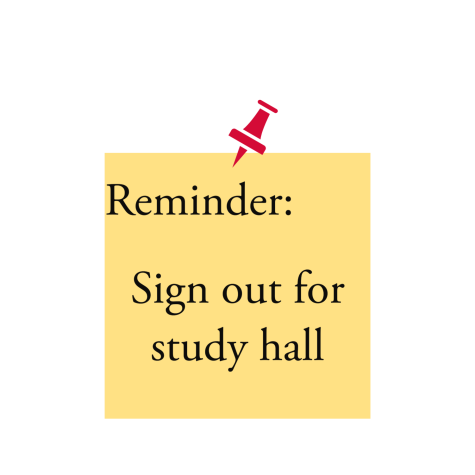Students Should Be Encouraged To Learn Outside the Classroom
While the pandemic made the occurrence of field-trips at high school over the past couple of years complicated, as most things return back to normal, so does the existence of non-traditional learning. Unfortunately, from student perspective, field-trips no longer contain the appeal that they used to in middle and elementary school. For many students, field-trips propose a problem: missing school.
WHS cites in their mission statement that their goal for educating students is to “foster learning through a collaborative process that engages students, educators and the community.” That being said, one of the best ways to offer student engagement within their community is through field trips. Furthermore, another part of the mission statement cites that WHS will “make every effort” to produce students that are “able to succeed in the increasingly complex world in which they will live.” Considering this, more experiential learning opportunities should be provided for students at WHS, as these experiences can more accurately provide students with the worldliness WHS claims to impart. So even though, on paper, field trips seem to be in alignment with the mission at WHS, why are so many students reluctant to attend them?
Well, one main reason is because students do not feel as if they would be given adequate time after the field trip to make up all the work missed during that class.
“I would be expected to go to class the next day like I did not miss a day, I would be expected to have everything done–notes done, homework done and expected to continue on as if I were in class the day before,” an anonymous WHS senior said.
The WHS Student/Parent Handbook states that students have “two school days to make-up work for each day absent.” Despite this policy, many students feel as though they are expected to be caught up by the time they return to class after a field trip. However, no separate specifications are found in the handbook pertaining specific absences, meaning absences for illness, medical appointments or fields trips must all follow the same rules. No teacher should treat students any differently because as per the handbook, field trips are actually an excused absence.
“It would be up to me to make up my work if I missed class for a field trip, like maybe [teachers] would give me some extra time, but I cannot say that with certainty,” another anonymous WHS senior said.
Not only does the issue affect students, but teachers also feel discouragement when they are planning field trips.
“Whenever I’ve run a field trip for students, I have felt as though I have to justify the validity of the trip to my colleagues so that people do not think students are missing their classes just to have fun,” an anonymous WHS teacher said. “However, while I do think field trips provide legitimate educational merit, I also do think fun is part of their value as well. Letting students have a little bit of freedom outside of school is really important for their development and helps them build skills that are crucial for life beyond high school. Even things as small as buying their own train tickets or planning what time they need to leave to get to a meeting spot on time give them a sense of agency that they often don’t get during the school day.”
According to Boston University’s Center for Teaching and Learning, this specific type of extracurricular education can “stimulate academic inquiry by promoting interdisciplinary learning, civic engagement, career development, cultural awareness, leadership and other professional and intellectual skills.” Experiential learning is necessary to the development of young minds, as it promotes outside-of-the-box thinking, and excites students about education in new ways.
Most often when students discuss field trips, they think of their sixth grade environmental camp week or the time they went to the Boston Tea Party museum in elementary school. But in highschool, field trips can be so much more than just a fun break from school. They can promote the interactions between one high school an another through the attendance of conferences and panels, like the Massachusetts Association of Student Councils (MASC) three-day conference. What once used to be a much revered trip is now struggling to find enough members who want to go in order to reach the minimum.
“I remember having to write a short paper or paragraph on why I deserved a spot [at MASC].” an anonymous WHS alum said. “I often think back on MASC and Student Council in general and feel like so much of what we did there and some of the skills you learn are way more valuable to me today than the time I spent in biology class.”
The difference in attitudes between past opinion and current opinion towards participating in field trips demonstrates the new culture at WHS that perpetuates students’ inability to take advantage of the immense opportunities offered. Field trips should be taken advantage of at the highschool level, and students should not be held back by schoolwork itself that they feel they cannot participate. Embarking on different educational experiences outside the classroom is beneficial to the learning process as a whole, and all students should have the ability to actually take part in these experiences. Teachers should support students’ exploratory endeavors, and allow students the proper support necessary if they need to catch up on work due to a field-trip. And not only that, but WHS itself should be encouraged to seek out more experiential learning for students to take part in, as it provides a necessary break from the monotony of everyday school as well as extreme benefits to educational development.

Sophia Brownsword, Class of 2023, is co-Editor-in-Chief of The Searchlight. At Walpole High School, Sophia plays soccer and runs spring track, is the...













